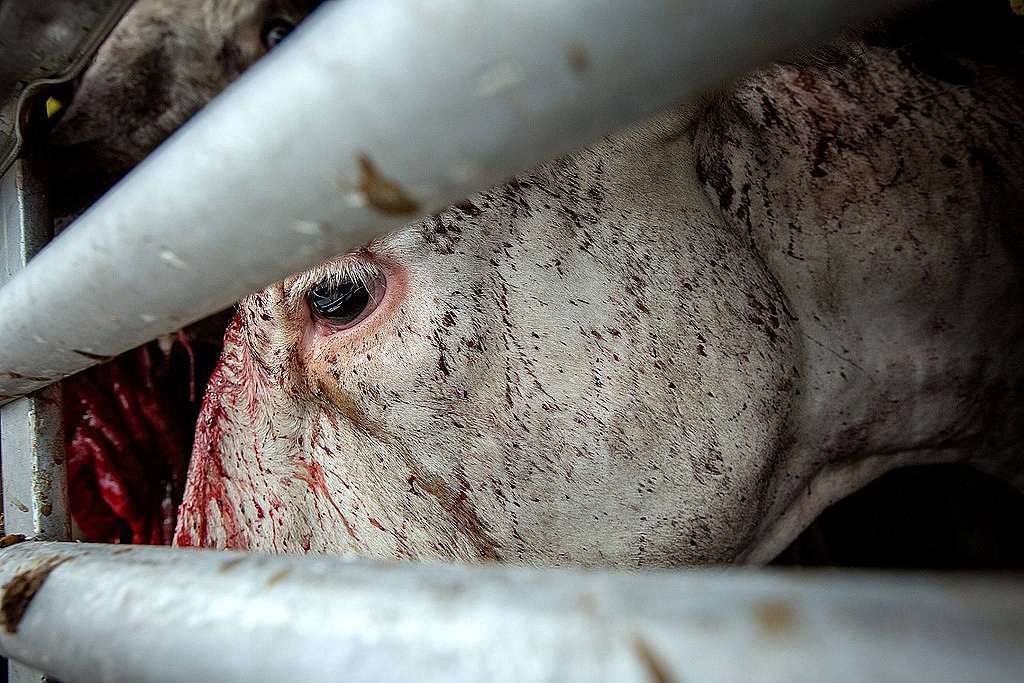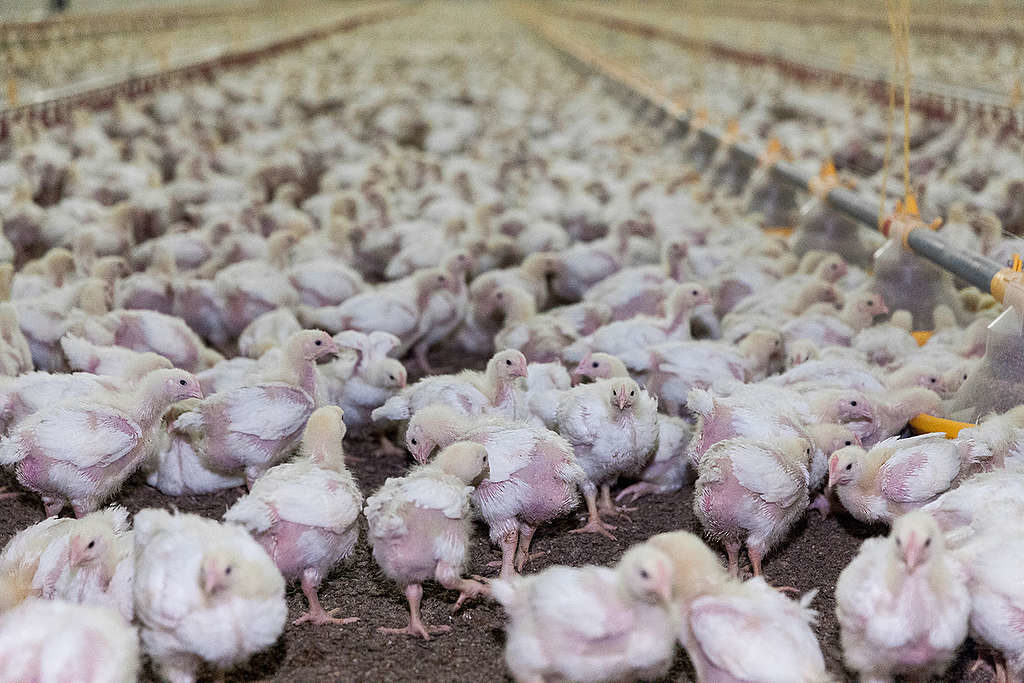There’s Something Rotten with the Meat Industry
ANIMAL RIGHTS - VEGETARIANISM, 11 Feb 2019
Nora Holzman and Katarzyna Jagiełło | Greenpeace – TRANSCEND Media Service
It was an unimaginable scene: diseased cows dragged to slaughter in excruciating pain, then sold without veterinary control around Europe and landing on the plates of many consumers.
Watch: This is what Polish viewers witnessed on an investigative TV broadcast last month

Milk cows, after their exploitation is over, will end up in the abattoir.
© (c) Andrew Skowron /andrewskowron.org
7 Feb 2019 – Days after the report, meat eaters around Europe would discover that rotten meat from sick cows had reached markets in 14 countries – the Czech Republic, Estonia, Finland, France, Hungary, Lithuania, Latvia, Portugal, Romania, Spain, Sweden, Germany, and Slovakia. And in some cases in school canteens. It could have ended up on your plate.
This is the latest of many scandals over the years to come out of industrial meat production. Previous ones included mad cow disease, listeria, and swine flu. At the core of these crises is the hunger for cheap meat to feed the greedy industrial system that is intent on bending the rules, as well as poor government oversight.
Looking at the sheer scale of industrialised meat production, it is only a matter of time before the next scandal will hit the headlines.
In Poland alone, more than 2,000 chickens, 42 pigs, and 3 cows are killed every minute. According to data from veterinary inspections, 22% of cattle and 35% of pigs sent to slaughter within a year were diagnosed with diseases, lesions and other causes that could make the meat unhealthy for human consumption.
99.9% of that livestock was still released for consumption. Meaning there could still be more rotten meat out there.

A chicken farm in Northern Germany. 30,000 male and female chickens of the breed “Ross” are fattened in this north German farm within 35 days. © Fred Dott / Greenpeace
Industrial meat production puts profit above public health and is a disaster for the environment. It contributes to deforestation, causes animals to suffer, it pollutes rivers and oceans, and is fuelling the climate crisis.

Greenpeace activists protest against the consequences of the factory-farming industry. © Gordon Welters / Greenpeace
Our decision-makers need to step up. We need more transparency and better regulation. But even more than that, we need to transform our food system into one that is healthy for people and planet.
The good news? We can all play our part in this:
- If you eat meat, find out where it comes from, and if you can, buy it from trusted ecological farmers.
- Embrace a diverse diet with plant-based alternatives, which are both safe and delicious – take a look at the Greenpeace Cookbook for inspiration and ideas.
- And consider looking out for others by asking your city to serve more eco-friendly and veggie food to kids in schools.
_____________________________________________
Nora Holzman is the global communications lead for the Meat and Dairy Campaign at Greenpeace.
Katarzyna Jagiełło is an agricultural expert at Greenpeace Poland.
Go to Original – greenpeace.org
DISCLAIMER: The statements, views and opinions expressed in pieces republished here are solely those of the authors and do not necessarily represent those of TMS. In accordance with title 17 U.S.C. section 107, this material is distributed without profit to those who have expressed a prior interest in receiving the included information for research and educational purposes. TMS has no affiliation whatsoever with the originator of this article nor is TMS endorsed or sponsored by the originator. “GO TO ORIGINAL” links are provided as a convenience to our readers and allow for verification of authenticity. However, as originating pages are often updated by their originating host sites, the versions posted may not match the versions our readers view when clicking the “GO TO ORIGINAL” links. This site contains copyrighted material the use of which has not always been specifically authorized by the copyright owner. We are making such material available in our efforts to advance understanding of environmental, political, human rights, economic, democracy, scientific, and social justice issues, etc. We believe this constitutes a ‘fair use’ of any such copyrighted material as provided for in section 107 of the US Copyright Law. In accordance with Title 17 U.S.C. Section 107, the material on this site is distributed without profit to those who have expressed a prior interest in receiving the included information for research and educational purposes. For more information go to: http://www.law.cornell.edu/uscode/17/107.shtml. If you wish to use copyrighted material from this site for purposes of your own that go beyond ‘fair use’, you must obtain permission from the copyright owner.
Read more
Click here to go to the current weekly digest or pick another article:
ANIMAL RIGHTS - VEGETARIANISM: